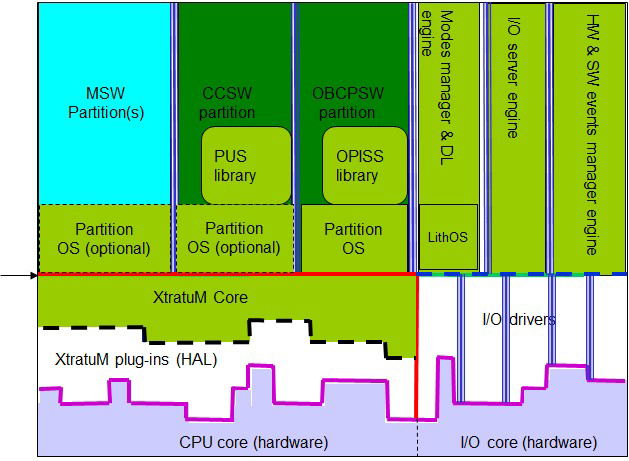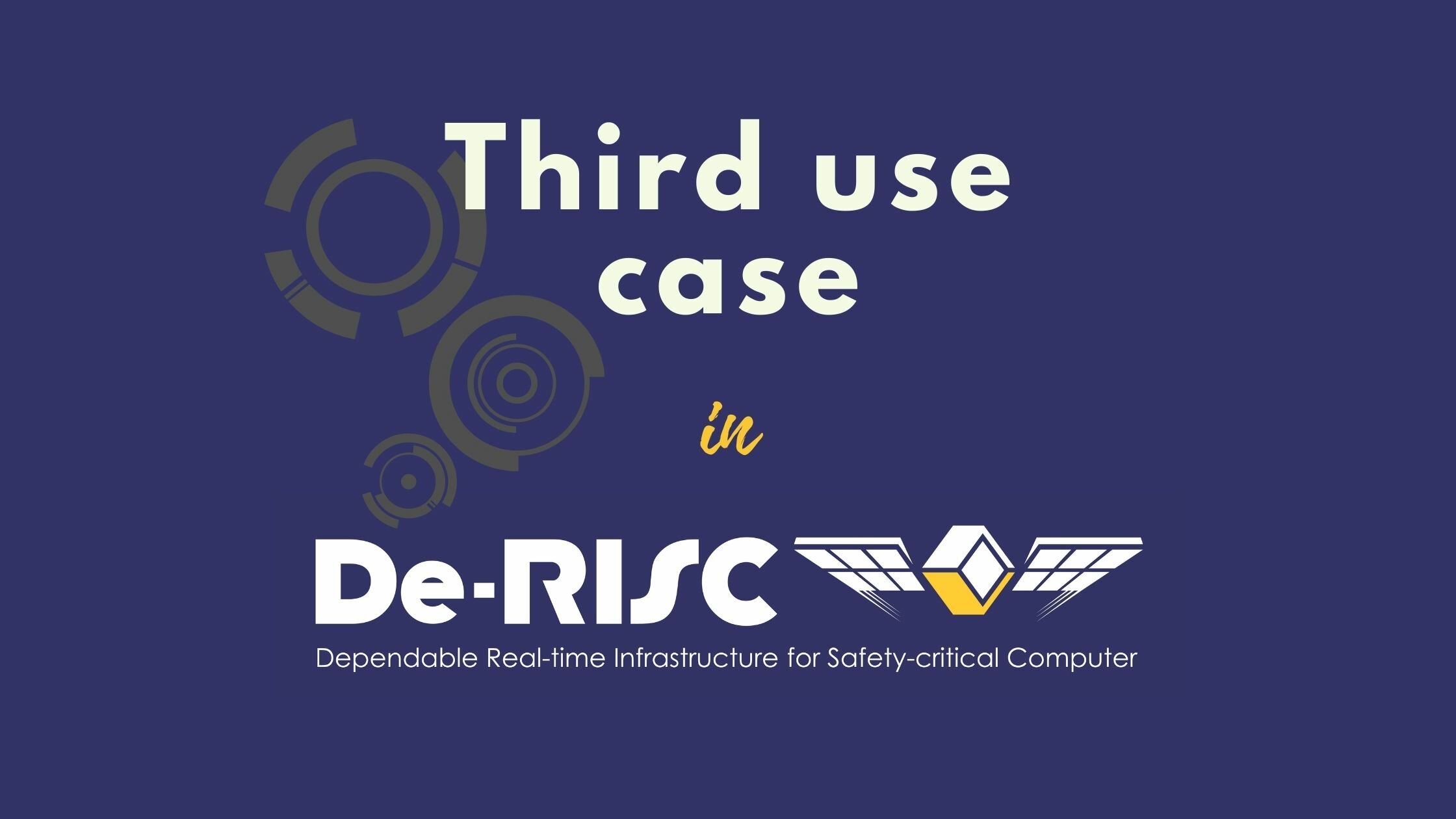The validation of the De-RISC platform involves several end-user use-case applications, representative of aerospace scenarios.
The third use-case is representative of a satellite flight software, including a wide set of functions and resource usage. It consists of a complete software environment and applications with varied behaviour, forming a complete mixed-critical system.
This use-case takes advantage of the LVCUGEN [1] framework, developed by CNES to speed up the development of satellite payload software. The name roughly translates to Generic Flight Software for Payload, and among the services provided we find time and space partitioning based on fentISS’ XtratuM Hypervisor and LithOS, telemeasure and telecontrol protocol with a comprehensive library, Mode management and data loading, health monitoring, Input/Output server, etc. The support of this framework on the De-RISC platform will demonstrate the capability required for modern space payload as well as similar integrated modular avionics (IMA).

On top of LVCUGEN, we deploy both a critical application and a compute-intensive application. The former performs telemeasure and telecontrol data exchange with stringent time constraints. The latter consists of the lossless hyperspectral image compression algorithm CCSDS123 [2], a state-of-the-art space standard, and will put a significant pressure on the NOEL-V cores and the memory hierarchy. In addition, in some test scenarios stressing benchmarks could be used to put further pressure on a specific shared resource. The advanced monitoring capabilities offered by the SafeSU module will be used to validate the low impact of high processing workload on the safe execution of the critical application.
[1] Julien Galizzi, Paul Arberet, Jean-Charles Damery, Christel Guy, Alfons Crespo, Miguel Masmano, Florence Roubert: LVCUGEN – Ready for Flight?. DAta Systems in Aerospace (DASIA), May 2015, Barcelona, Spain
[2] Lucana Santos Falcon, Roberto Camarero. Introduction to CCSDS compression standards and implementations offered by ESA, European Workshop on On-Board Data Processing (OBDP2019), Feb 2019, Noordwijk, Netherlands.

